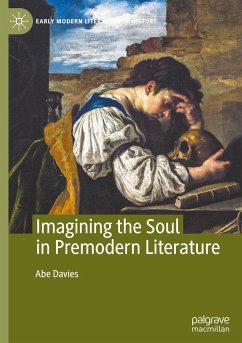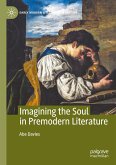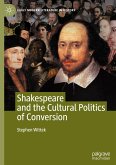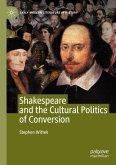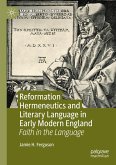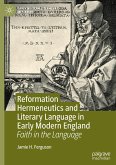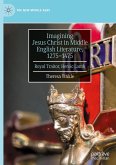This book is a study of ghostly matters - of the soul - in literature spanning the tenth century and the age of Shakespeare. All people, according to John Donne, 'constantly beleeve' that they have an immortal soul. But he also reflects that in fact there is nothing 'so well established as constrains us to beleeve, both that the soul is immortall, and that every particular man hath such a soul'. In understanding the question of man's disembodied part as at once fundamental and fundamentally uncertain he was entirely of his time, and Imagining the Soul in Premodern Literature considers this fraught, shifting, yet uniquely compelling entity in the context of the literary forms and effects involved in its representation. Gruesome medieval dialogues between damned souls and worm-eaten bodies; verse and prose works by Donne, René Descartes, Margaret Cavendish and Andrew Marvell; a profusion of sonnet sequences, sermons, manuals of instruction and travelogues; Hamlet and its natural philosophical thinking about the apparently disembodied soul haunting Elsinore: these chapters range across all this and more, offering a rigorous yet accessible account of an essential aspect of premodern literature that will be of interest to scholars, students and the general reader alike.
"Thought-provoking ... . refreshing new perspectives ... . [Its] fascinating rereading of Hamlet's ghost within the discourse of early modern experimentalism and its reception of classical atomist notions of vacuity ... . is a showcase of just how much new and original insight may be gained from Davies's method." (Gabriela Schmidt, Renaissance Quarterly, Vol. 76 (3), 2023)
"An ambitiously wide ranging and earnestly but often delightfully quirky study of the literary representation of the soul. ... packed full of creative connections and provocative new perspectives ... . this study is a creative contribution not only to literary studies but also to intellectual history and to the histories of philosophy, science, and religion that is to be commended for its intellectual ambition and deserves a wide readership." (David Parry, Modern Language Review, Vol. 118 (4), October 2023)
"Erudite and compelling ... . unexpected and revelatory ... . rich and deeply accomplished ... bringing philosophical and existential concerns into direct and complex dialogue with questions of literary form. ... Copious and persuasive, Davies's study is an excellent exploration ... ." (Alison Searle, SHAKESPEARE, September 12, 2023)
"An ambitiously wide ranging and earnestly but often delightfully quirky study of the literary representation of the soul. ... packed full of creative connections and provocative new perspectives ... . this study is a creative contribution not only to literary studies but also to intellectual history and to the histories of philosophy, science, and religion that is to be commended for its intellectual ambition and deserves a wide readership." (David Parry, Modern Language Review, Vol. 118 (4), October 2023)
"Erudite and compelling ... . unexpected and revelatory ... . rich and deeply accomplished ... bringing philosophical and existential concerns into direct and complex dialogue with questions of literary form. ... Copious and persuasive, Davies's study is an excellent exploration ... ." (Alison Searle, SHAKESPEARE, September 12, 2023)

